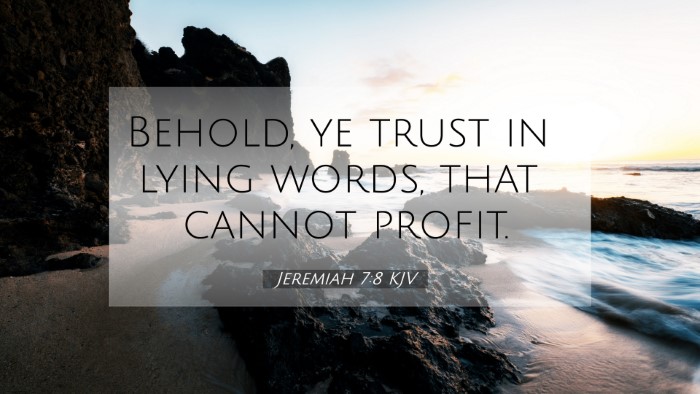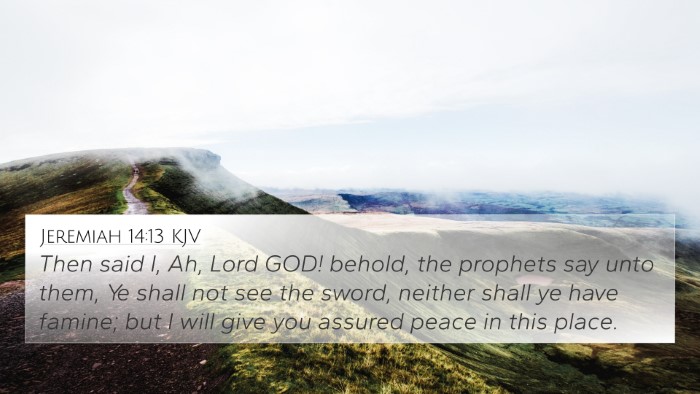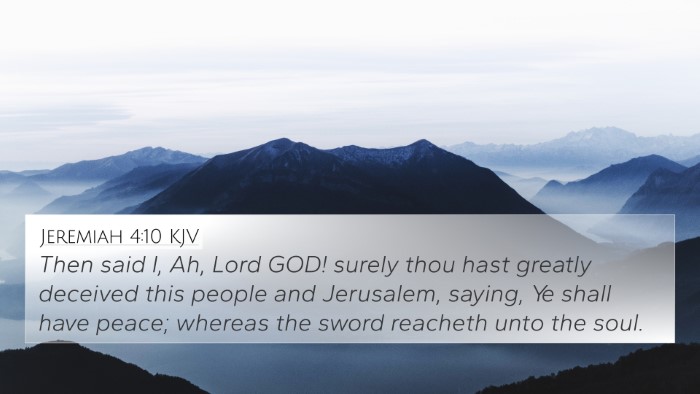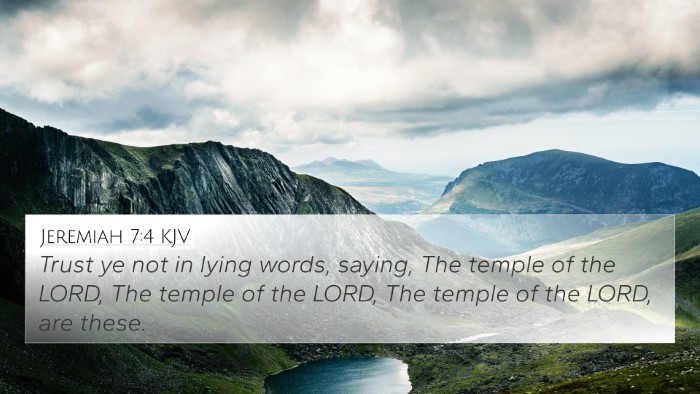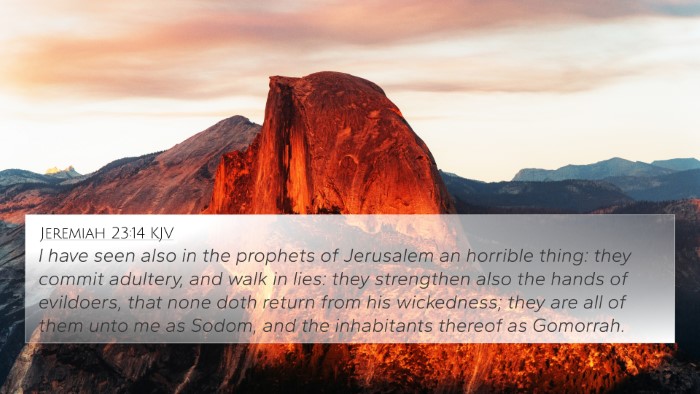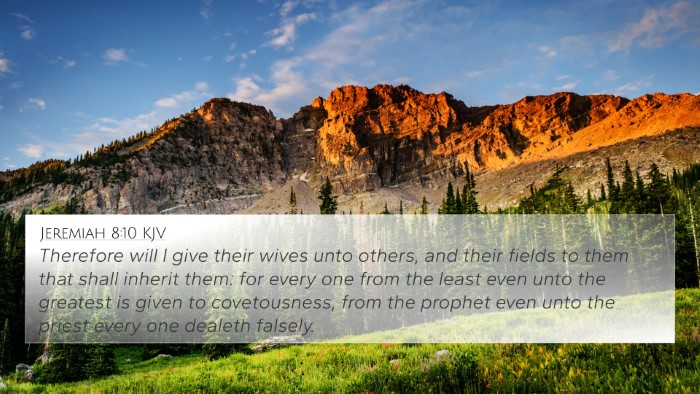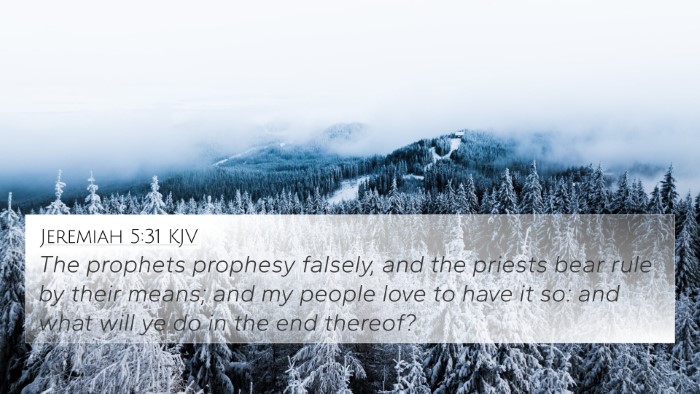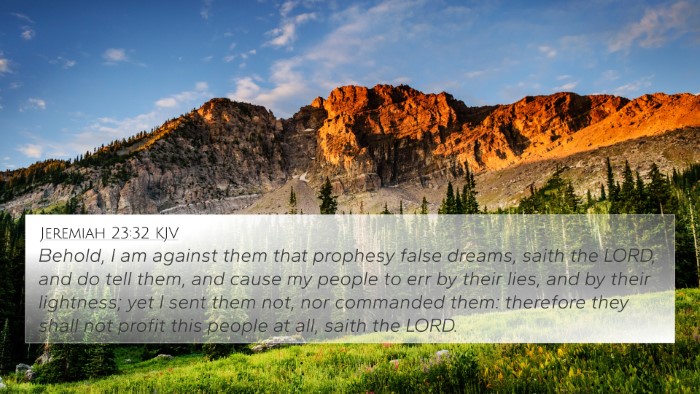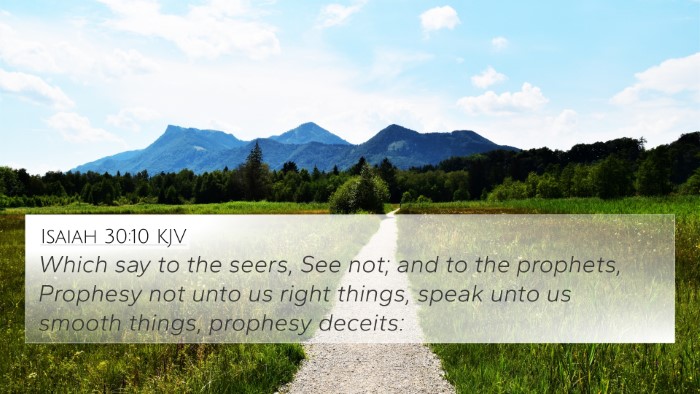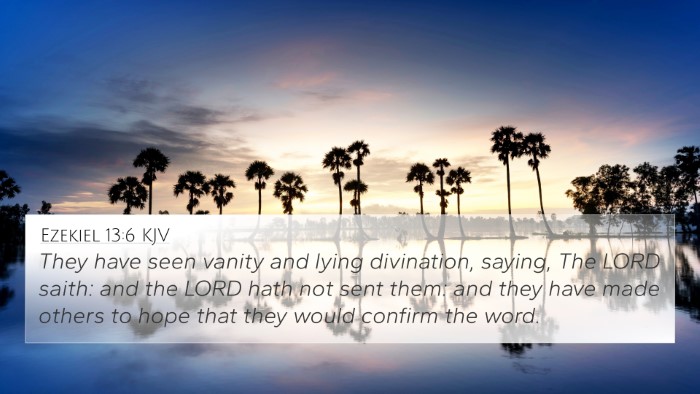Understanding Jeremiah 7:8
In Jeremiah 7:8, we encounter a powerful admonition regarding the false security that the people of Judah had in the physical structure of the temple and their perceived covenant with God. This verse reads: "Behold, ye trust in lying words, that cannot profit." This verse encapsulates themes of trust, judgment, and the futility of mere outward religion without genuine repentance and faith.
Combining Insights from Public Domain Commentaries
In exploring the meaning of this verse, insights from various respected commentaries provide a rich understanding:
- Matthew Henry: Emphasizes the warning against misplaced trust. Henry points out that the people of Judah had come to depend excessively on the temple as a symbol of divine favor, overlooking the need for true obedience and heartfelt worship. He cautions that such false reliance on external symbols could lead to spiritual ruin.
- Albert Barnes: Highlights the context of Israel's disobedience despite their belief in the temple's sanctity. Barnes suggests that relying on "lying words" reflects a broader human tendency to embrace comforting illusions instead of confronting uncomfortable spiritual truths. He interprets this as a call for authenticity in faith.
- Adam Clarke: Offers a historical lens, illustrating that many Israelites held onto deceptive assurances from false prophets. Clarke stresses the significance of divine judgment that awaits those who trust in assurances contrary to God’s true message. His commentary urges believers to discern between genuine truth and comforting lies.
Cross-Referencing Biblical Texts
This verse invites a closer look at significant cross-references that deepen our understanding of its message:
- Isaiah 30:9-10: This passage speaks of rebellious people who wish to hear smooth things and refuse to discern the truth, paralleling the theme of false reassurance found in Jeremiah 7:8.
- Micah 3:11: The prophets who prophesy for money and priests who teach for a price capture the essence of corrupt leadership that misleads the people, akin to the "lying words" mentioned by Jeremiah.
- Matthew 23:27-28: Jesus admonishes the Pharisees for being outwardly righteous but inwardly corrupt, reinforcing the idea that external appearances without internal truth are deceptive.
- 1 Timothy 4:1: This verse warns of those who will depart from the faith, giving heed to deceiving spirits and doctrines of demons, echoing the deception Jeremiah warns against.
- James 1:22: The call to be doers of the word, not merely hearers, resonates with Jeremiah’s message that trust must be accompanied by action faithful to God’s commands.
- Jeremiah 14:14: This establishes a context of false prophecies, indicating that the people are being led astray by misleading claims about safety and security.
- Romans 2:28-29: A reiteration of true circumcision being of the heart rather than outward acts aligns with Jeremiah’s condemnation of misplaced religious trust.
Thematic Connections
This passage underscores several key themes within scripture, which can be examined through comparative analysis:
- Faith versus Ritual: The distinction between genuine faith and mere ritualism is a recurring theme throughout both the Old and New Testaments. Jeremiah’s admonition aligns with Jesus’ teachings regarding the heart of worship.
- Judgment and Mercy: The balance of divine judgment and the offer of mercy, witnessed throughout various prophetic texts, finds connection in Jeremiah's call for authentic return to God.
- The Role of Prophets: The danger of false words and misleading leaders ties into the broader narrative of prophetic warnings across scripture.
Implications for Today
Understanding Jeremiah 7:8 carries critical implications for contemporary believers:
- Challenge to critically assess one's faith and reliance on external signs versus the internal reality of faith.
- A reminder to seek truth actively and genuinely within the complexities of today's spiritual landscape.
- A caution against embracing popular teachings or doctrines that lack solid biblical foundations.
Conclusion
In conclusion, Jeremiah 7:8 serves as a powerful reminder of the necessity for authenticity in our relationship with God. Through the insights of various commentators, the interconnectedness of scripture becomes apparent, urging a deeper and more sincere faith journey. By exploring related verses and themes, believers can cultivate a more profound understanding and appreciation for God's call to genuine repentance and trust.


